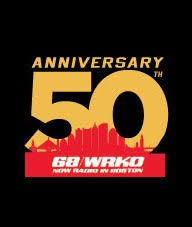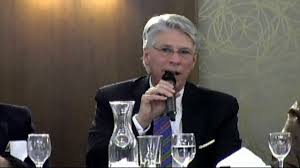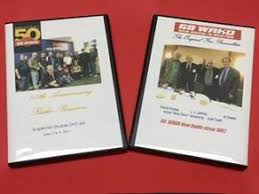 By definition, a commodity product lacks a unique selling point. Two examples of what I mean are lettuce and pencils. No one has a brand favorite of either. To the consumer of both, they’re all the same. Commodities are interchangeable with other products or services, widely available, and therefore undifferentiated except maybe by price.
By definition, a commodity product lacks a unique selling point. Two examples of what I mean are lettuce and pencils. No one has a brand favorite of either. To the consumer of both, they’re all the same. Commodities are interchangeable with other products or services, widely available, and therefore undifferentiated except maybe by price.
How about Radio?
Recently, an administrator of a radio group that I’m a member of on Facebook posed this question to the group “Rick Sklar once said jocks are like spark plugs and can be replaced with another one. What do you think?”
Now for those readers that may not be familiar with the name Rick Sklar, he became program director of WABC – 770AM in New York City in 1963. With WABC’s clear channel signal, a tight playlist that targeted teenagers and air talent which included Dan Ingram, Ron Lundy, Harry Harrison, Cousin Brucie, Chuck Leonard and Charlie Greer, Sklar made Music Radio 77 into the most listened to radio station in North America from the mid 60s to the late 70s.
Needless to say, the comments by former air personalities in the group took issue with this “spark plug” analogy, me included.
Unique Air Talents
One-of-a-kind radio personalities built radio into the listener favorite that it’s enjoyed for nearly a century. More recently, there’s Rush Limbaugh, Howard Stern (who said he was influenced by Arthur Godfrey), Paul Harvey, Super Jock Larry Lujack, Robert W. Morgan, The Real Don Steele, Dave Maynard, Joel Cash, Dale Dorman, Larry Justice, Jackson Armstrong, Salty Brine, Bob Steele, Dickie Robinson, Danny Neaverth, John Records Landecker, J.J. Jeffrey, Bill Bailey, Big Ron O’Brien, Don Imus, Bob Dearborn and so many more. Those are just some of the names that inspired me to pursue a 50-year radio career.
Each of these radio personalities is unique and the shows they presented attracted an audience that was loyal to their style of broadcasting. They were anything but, a commodity.
Computer Automation
With the advent of computer automation, the concept of voice-tracking was born. Now a few disc jockeys could be heard on-the-air over a multitude of radio stations across America. Unfortunately, this meant that customizing their radio shows to a particular radio market had to be eliminated and the DJ patter had to be appropriate for all markets the program was airing in. It became watered down and because all big box radio operators were employing the same “Best Practices,” the ownership of the station really didn’t matter as everything began to sound the same.
Contests became nationally oriented, jingles (if there were any) all sounded the same, and playlists, which once reflected regional differences and artists, were now homogenized.
On Air production, which was once an art form in and of itself, was now also computerized. The result being a disjointed, sloppy and anything but smooth radio experience.
The result of all of this was radio being turned into a commodity.
Culture Shock
“Technology is enabling great gains in convenience and diversity,” says Tyler Cowen, professor of economics at George Mason University. “What is being lost is a sense of magnificence.”
He goes on to say
“It is possible we will look back on the present day as a special time when both patterns of cultural consumption could be enjoyed in tandem and enriched (by) each other. But I suspect not. As today’s over-50 crowd slowly passes away, and our experiences fade from collective memory, I wonder if the world might be in for a bigger cultural shock than we currently realize.”

 Last summer, WRKO held its 50th Anniversary Reunion in Boston. The original five personalities that kicked off “Now Radio in Boston” were all there; Chuck Knapp, J. J. Jeffrey, Al Gates, Arnie “Woo Woo” Ginsburg and Joel Cash.
Last summer, WRKO held its 50th Anniversary Reunion in Boston. The original five personalities that kicked off “Now Radio in Boston” were all there; Chuck Knapp, J. J. Jeffrey, Al Gates, Arnie “Woo Woo” Ginsburg and Joel Cash.
